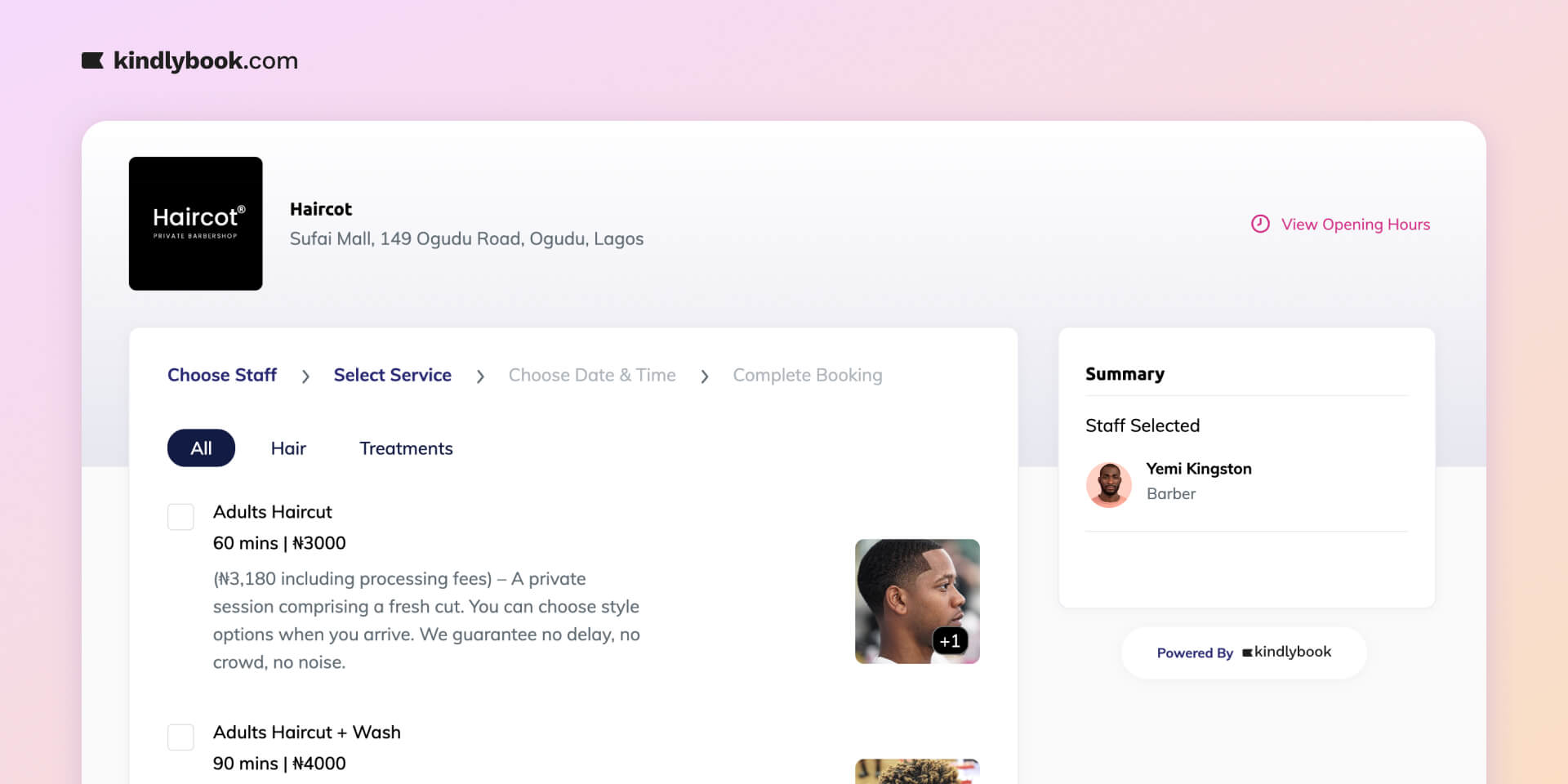Starting a nail tech business in Nigeria can feel overwhelming when you’re new. You may love doing nails or admire the creativity behind it, but turning that passion into a real business is a different journey. Many people wonder where to start, what skills they need, how much money it will take, and how to attract clients in a competitive market.
Nail care is one of the fastest-growing services in Nigeria’s beauty industry. From simple manicures to advanced nail art, clients are willing to pay for quality service and consistency. With more people becoming conscious of their looks, there has never been a better time to own a nail technician business.
This guide is written for beginners who want clear, practical steps to start a nail tech business in Nigeria. You’ll learn everything from getting the right training, choosing services, and setting up your space to pricing, marketing, and keeping clients coming back.
By the end, you’ll have a roadmap that guides you to building a nail business that works.
What Is a Nail Tech Business?
A nail tech business is a service-based business run by a nail technician who is trained to care for and beautify nails. It extends beyond polish application and covers nail care, nail extensions, nail art, and general hand and foot treatments.
Depending on your setup, you can operate from home, a salon, a studio, or offer mobile services where you visit clients at their homes.
At its core, a nail tech business is about blending technical skill, creativity, and client care. Your goal is to keep nails healthy while also making them look stylish and unique to each client’s taste, and getting paid for the service you offer.
Types of Nail Artistry You Can Offer
When starting a nail tech business, it’s important to know the different services you can provide. This helps you define your niche and attract the right clients. Here are some of the most common types of nail artistry:
- Basic Manicure and Pedicure: Cleaning, trimming, and shaping nails while maintaining good nail health.
- Gel Polish: Long-lasting polish cured under a UV or LED lamp, popular for its durability.
- Acrylic Nails: Artificial nails created using liquid and powder, perfect for clients who want longer nails.
- Gel Extensions: Lighter than acrylics, gel extensions are built using builder gel for a natural yet strong look.
- Nail Art: Creative designs, from simple lines and rhinestones to intricate freehand artwork.
- Dip Powder Nails: A system that uses powder and resin for a durable, low-maintenance option.
- Luxury Treatments: Extras like paraffin wax dips, nail masks, and hand massages that add value to the client experience.
Offering a range of services allows you to attract more clients, but as a beginner, you can start with the basics (manicure, pedicure, gel polish) and expand as your skills grow.
How to start your nail tech business in Nigeria
Having explained what a nail tech business is and the types of nail artistry, let’s get into how you can set up your nail tech business.
1. Acquire the skill
The first step is skill. Clients will only come back if your work looks professional and lasts. Enroll in a nail technician training program where you can learn the basics of manicures, pedicures, acrylics, gel polish, nail art, and hygiene practices. Many beauty schools across Nigeria offer short courses that range from a few weeks to a few months.
People want to know they are in safe, professional hands. Even if you plan to start small from home, training separates you from an amateur.
Look for reputable beauty schools or certified nail training programs that teach:
- Nail anatomy and health
- Manicure and pedicure basics
- Acrylic, gel, and builder extensions
- Nail art techniques
- Hygiene and sterilization practices
2. Define your services
Nail care is a wide field, and it can be tempting to offer every service under the sun. But trying to do too much in the beginning often leads to burnout and inconsistent results. Instead, focus on a small set of services you’re confident in. This builds your reputation for quality and gives clients a clear idea of what you specialize in.
For example, you could start with:
- Basic Manicures and Pedicures: Simple cleaning, trimming, and polishing for natural nails.
- Gel Polish or Acrylic Extensions: Long-lasting options that are always in demand.
- Nail Art and Designs: For clients who want a touch of creativity and personalization.
- Nail Repair and Maintenance: Fixing broken nails or refills for extensions.
By narrowing your services, you make it easier for clients to understand your offerings and pricing. It also helps you manage your workload, since fewer services mean less pressure to master everything at once.
As you gain experience and confidence, you can expand to include advanced options like dip powder nails, luxury treatments, or even training sessions for others.
3. Get the Right Tools and Products
Your tools are your backbone. The basics include:
- Nail files, buffers, and clippers
- UV/LED lamp for gel nails
- Acrylic and gel kits
- Nail polish in different shades
- Sterilizer and sanitizing solutions
- Towels and disposable supplies
A nail technician’s workspace with tools on display
Start small but buy good quality. Cheap products may chip easily or damage nails, which could harm your reputation. As your business grows, invest in more advanced equipment.
4. Set up Your Workspace
Where you work has a big impact on how clients see your business. You don’t need a fancy salon to begin with. Many successful nail techs in Nigeria start from home, working in a spare room or even a section of their living space.
As you grow, you can move into a rented shop in a busy area with foot traffic. What matters is that your space feels professional, comfortable, and safe for clients.
Your workspace should include:
- A sturdy nail table
- An ergonomic chair for yourself, and comfortable seating for clients.
- Good lighting is important because nail work requires precision, and clients also want to see the quality of what you’re doing.
- A ring light or desk lamp can make a big difference.
- Add shelves or storage boxes to keep your polishes, brushes, and tools organized.
- Soft music, pleasant scents, or even a nicely decorated corner to make clients feel relaxed
Always sterilize tools after each use, use clean towels for every client, and keep your workspace neat. Simple things like offering clients hand sanitizer before starting or showing them how you disinfect your tools can build trust and set you apart. Clients are more likely to return if they feel safe and well cared for.
The goal is to create a space where clients feel they’re getting value for their money, whether they’re in your home studio or a small shop.
5. Create a Transparent Pricing Structure
Pricing can make or break your nail tech business. Charge too low, and you may struggle to cover costs. Charge too high, and you may scare off first-time clients.
Research what other nail techs in your area are charging. Then, price your services based on product costs, time spent, and skill level. Display your price list clearly, either on your wall, your booking page, or social media. Transparency builds trust and reduces awkward conversations.
6. Market Your Business
Even if you’re skilled, clients won’t appear magically. You need to market yourself. Start with:
- Social Media: Instagram, TikTok, and WhatsApp are great for showing off your work. Post clear before-and-after pictures and short videos.
- Word of Mouth: Ask satisfied clients to refer friends. Offer discounts for referrals.
- Local Visibility: Print simple flyers or put up signs if you have a physical space.
Most importantly, be consistent. Clients are drawn to professionals who show up regularly online and in person.
7. Manage Bookings and Payments Smoothly
Many nail techs in Nigeria rely only on WhatsApp for bookings. While it works at the start, it quickly becomes stressful. Constant back-and-forth messages lead to double-bookings, late payments, or no-shows.
This is where a booking software like Kindlybook makes life easier. With Kindlybook, you get a professional booking page where clients can see your services, pick a time, and pay upfront. It works like a digital receptionist, freeing you to focus on your craft instead of chasing messages.
8. Deliver Excellent Service
The real secret to growing your nail tech business is client retention. One happy client can bring you five more. Always deliver quality, maintain hygiene, and create a pleasant experience. Offer small touches like complimentary hand cream or light conversation. These little things make clients feel cared for and keep them loyal.
Common questions on starting a nail tech business in Nigeria
1. How much does it cost to start a nail tech business in Nigeria?
You can start small with ₦100,000–₦300,000 for training, basic tools, and products. If you want to rent a space, budget more for furniture and rent.
2. Do I need a license to run a nail tech business in Nigeria?
Currently, Nigeria does not have strict licensing laws for nail technicians. However, certification from a recognized beauty school adds credibility and reassures clients.
3. Can I run a nail tech business from home?
Yes. Many nail techs start from home to save costs. Just ensure your workspace is clean, professional, and comfortable for clients.
4. How do I attract clients as a beginner?
Focus on social media, word of mouth, and referrals. Post your work consistently and offer discounts to first-time clients or referral bonuses.
5. How do I avoid no-shows and late payments?
Use a booking system that requires upfront payments, like Kindlybook. This reduces cancellations and ensures you get paid on time.
Conclusion
Starting a nail tech business in Nigeria requires more than passion for nails. It’s about learning the craft, setting up your services, creating a welcoming space, and using the right tools to manage bookings and payments. With consistency and a system like Kindlybook to handle the admin side, you can focus on growing your skills and giving clients the best possible experience.


